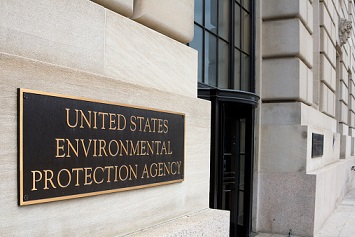EPA Administrator Scott Pruitt has followed through on a commitment he made last month to initiate rulemaking to limit the Agency’s use of scientific information that is not accessible to the public and, therefore, not available for independent verification.
Called Strengthening Transparency in Regulatory Science, the proposal seeks to ensure that the Agency’s decision making is “marked by independence, objectivity, transparency, clarity, and reproducibility.” The proposal also responds to several Executive Orders (EO) President Donald Trump issued in March 2017. The first EO called on federal agencies to identify which regulations and policies relied on science that was not publicly available; the second EO stated it is the policy of the United States that environmental improvements are to be developed through transparent processes that employ the best available peer-reviewed science and economics.
Pivotal Regulatory Science
The proposal would require that the EPA “clearly identify all studies (or other regulatory science) replied upon when it takes any final agency action. The EPA should make all such studies available to the public to the extent practicable.
Furthermore, the proposal would apply to “significant regulations: specifically, the dose response data and models that underlie what we are calling ‘pivotal regulatory science.’”
“‘Pivotal regulatory science’ is the studies, models, and analyses that drive the magnitude of the benefit-cost calculation, the level of a standard, or point of departure from which a reference value is calculated,” states the EPA. “In other words they are critical to the calculation of a final regulatory standard or level, or to the quantified costs, benefits, risks, and other impacts on which a final regulation is based.”
Exceptions Allowed
The EPA administrator would be authorized to make an exception to the public-availability requirement on a case-by-case basis if it is determined that it is not feasible to ensure that all dose response data and models underlying pivotal regulatory science are publicly available in a manner sufficient for independent validation or if it is not feasible to conduct independent peer review on all pivotal regulatory science used to justify regulatory decisions.
Confidentiality Protected
The proposal was promptly supported by members of the House who, in March 2018, introduced the Honest and Open New EPA Science Treatment Act of 2017 (HONEST Act).
“Administrator Pruitt’s announcement ensures that data will be secret no more,” said Rep. Lamar Smith (R-Texas), one sponsor of the HONEST Act. “For too long, the EPA has issued rules and regulations based on data that has been withheld from the American people. Today, Administrator Pruitt rightfully is changing business as usual and putting a stop to hidden agendas.”
Smith noted that opponents of the bill and EPA’s proposal are needlessly concerned that transparency will lead to disclosure of private information about individuals who participate in studies. The right to privacy is ensured in the proposal, said Smith.
“Redacting personally identifiable information is one option that agencies across the federal government already have used for years,” said Smith. “Where redaction would limit the quality of datasets [sic] for individuals who wish to see the data underlying a study, access could be granted if the user agrees to keep the information confidential.”
Laws Violated?
This defense of the proposal failed to mollify the Union of Concerned Scientists (UCS), which, on the day the proposal was announced, sent Pruitt a letter signed by over 1,000 scientists who agreed on reasons why the proposal was a mistake and addressed a nonexistent problem. The UCS stated:
“First, many public health studies cannot be replicated, as doing so would require intentionally and unethically exposing people and the environment to harmful contaminants or recreating one-time [sic] events (such as the Deepwater Horizon oil spill). Second, there are multiple valid reasons why requiring the release of all data does not improve scientific integrity and could actually compromise research, including intellectual property, proprietary, and privacy concerns. Further, EPA has historically been transparent in demonstrating the scientific basis of its decisions, so the public can hold the agency accountable to establish evidence-based safeguards; any changes should be made with the full consultation with and support of the scientific community.”
Also in a letter to Pruitt, several Senate Democrats said the proposal would likely violate federal environmental law, including the Toxic Substances Control Act and Safe Drinking Water Act “because it would require EPA to ignore some of the ‘best” scientific studies.’”
“Courts have explained that ‘best available science’ means that agencies ‘should seek out and consider all existing scientific evidence relevant to the decision’ and ‘cannot ignore existing data,’” wrote the senators.


